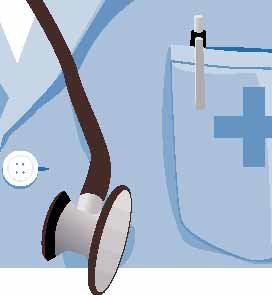
A government-run health plan is not merely “too extreme” or “overdoing it.” A government-run health plan is precisely the opposite of how it should be. The government “controls costs” by forcing doctors and patients to behave in ways other than how they normally would. This includes both spending and the practice of medicine–a very important and, obviously, life-or-death activity. The government decides what’s right for everyone and no exceptions are made–other than for the occasional influential politician or family member, of course.
It’s true that there is no profit in a public system. But that lack of profit comes at a severe price: The elimination of freedom for both doctors and patients; the elimination of incentives for doctors to do excellent–or, in some cases, minimally competent–work; and the inability of doctors and patients to interact as a practitioner and recipient of care, exchanging goods and services. Government-run health care–which a “public option” will inevitably lead to, and to which it is intended to lead–is simply a more extreme and consistent version of what we already have. The most common complaints I hear from people about their doctors are that doctors don’t spend enough time with them, and don’t seem to care. This is a symptom of a medical care “system” over controlled by government regulations (which govern both Medicare and the “private” health insurance industry) and erosion in the doctor-patient relationship. If anybody seriously thinks these problems and imperfections can be resolved by the federal government taking over all aspects of medical decisions and medical payments, for everyone in the United States, then something is more than seriously off in their basic approach.
While people fight over whether government should take over health care or not, I rarely hear anyone advocate that the practice of medicine be a business like any other. I don’t understand why this is such a bad idea. “Being a business” means tons of choices; tons of price ranges; different needs met by different kinds of providers for different patients. It means freedom of competition so intense that prices will inevitably go down some, or at least not rise as they do when government guarantees something as an entitlement (as it already does through Medicare). “Being a business” means that doctors answer to their patients more than to anyone else–not to the government, not to a state-regulated “private” insurance company, or not to a lawyer who holds the threat of lawsuits over any minor perceived mistake, more for the financial benefit of the lawyer than the patient. “Being a business” means the majority of patients will gain access to at least basic medical care through the private market, the way everyone who wants a television, a cell phone or even an automobile can currently afford one.
The occasional need for, or existence of, voluntary charity, or voluntary good will, is not wiped out by a free market system in which doctors work for the patient. You can better believe charity and good will go by the wayside once the government takes over and says, “We’re handling everything.”
What’s so bad about the free market for medicine? Why is something that has delivered so well with respect to other products and services–computers, appliances, airplane flights, and the like–not even considered as the solution for the health care mess? People have taken a closer look at government-run medicine for the second time in 15 years, and for a second time a majority seem to be saying, “I don’t like that.” The alternative is staring you right in the face. It’s called freedom, business, and capitalism: applied to medical care.
Won’t you embrace it?
Permission granted to send this article, or other articles on health care by Dr. Michael Hurd, to your representatives in Washington DC. Go here to obtain information on contacting your representatives in Congress: http://www.usa.gov/Contact/Elected.shtml
